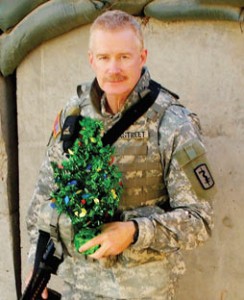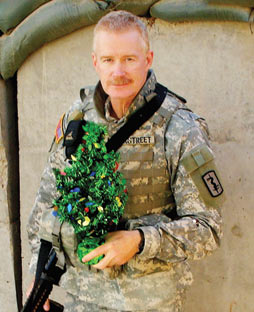By Patrick Cusack/reporter

Stress is a major factor in everyone’s life, and for those fighting overseas, it can get to the point where life becomes intolerable if not treated properly.
In a Nov. 28 presentation, Dr. Charles Overstreet, South Campus professor of psychology, told NW Campus students his role in the U.S. Army’s 1972nd Combat Stress Control Detachment to the 10th Combat Support Hospital, the history of stress and its control in military.
“Post-traumatic stress disorder was first identified and began to be treated during the Vietnam War,” he said. “But it can be traced back to the Civil War.”
Overstreet said until the Vietnam War, PTSD was thought of as cowardice and weakness in the soldier and not as an actual disorder. In Iraq, the military has changed its strategy on combating stress by changing a number of things.
“We used to have support hospitals in the rear far away from the battle and would pull soldiers away from the battle to treat them, but we realized that they needed to be treated as soon as possible and in the same environment the injury happened,” he said.
“The combat support hospitals gradually changed from buildings away from the combat to mobile combat support units close to the front … and that has greatly reduced the severity of the mental injuries suffered by the soldiers.”
The stresses of modern warfare in Iraq are not like those caused by the trench warfare of WWI, Overstreet said. Technology has greatly contributed to this especially now that soldiers can keep in touch with loved ones back home via Internet and phone.
“There is an upside and downside of this technology,” he said. “Soldiers have higher morale and reduced stress by having these forms of communication, but at the same time are being exposed to problems that are happening back home giving them something more than death to worry about.”
This stress has led to a very high divorce and suicide rate among soldiers and officers, Overstreet said.
Unlike the Vietnam War, the public understands the soldiers are not causing the war, Overstreet said. They are not fighting for political reasons, but instead they are fighting for each other.
“That leads to a great boost in mental stability of those returning from their tours in Iraq knowing that they will have people glad for them to be home that appreciate them,” he said.




























